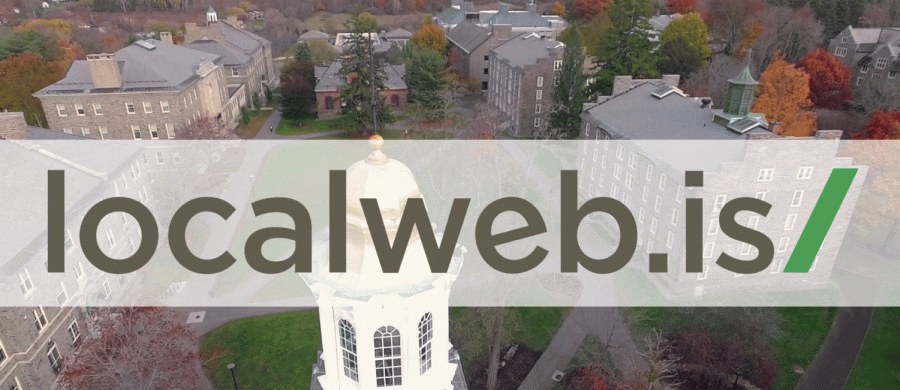Alum to Launch ‘local web’ at Colgate
A new social media startup called “local web” aims to use Colgate University as the project’s launch point. Described as a “local version of Twitter meets Reddit,” local web combines Twitter’s commenting features with subreddit-esque topics (termed “slashes”). Project co-founders Jess Bachman, Marcos Gois, Chris Zamierowski and Colgate alumnus Dave Domm ’97 hope to officially launch local web at Colgate within the next month, although the platform is already accessible at the web address https://localweb.is.
“Our future for [local web] is absolutely enormous,” Bachman said. “It’s an opportunity for Colgate to get in on the ground floor, and design some of the features that’ll be used in the future. We’re really looking for creativity, and [to] see how people end up using it.”
Local web has the potential to promote discussion about activities, interests, events and more. A quick browse through Colgate’s local web reveals slashes such as “/jug” and “/andrews.”
Local web’s content is completely user-driven, so users may create their own slashes instantly, and comment under any existing slash. Further, as a local social platform, the slashes are limited to roughly a two-mile radius, so discussion remains limited to a neighborhood-sized space.
Domm described local web as a new form of social media.
“It’s a local social network that’s more organized than YikYak,” Domm said. “[It’s] more flexible than Twitter or Facebook.”
Another major feature is something called “contextual identity.” Within each slash, a user may create a new persona or “handle” for each different category. For example, a user who uses their real name in “/Econ151” may create a different name for “/politics” or “/parties.”
The platform differs from other social media networks in its minimal barrier for entry, as local web does not offer an app for cellphones.
“We want to make it accessible to everyone from the get-go,” Bachman said. “Everyone with access to a browser can access the local web. We’re hoping it’ll help people get on it much quicker.”
Domm and Bachman built local web to fully realize the potential of a local social media platform.
“The World Wide Web connected the world, but it didn’t connect the last mile – our backyards, our neighborhoods, our communities,” Domm said.
Apps such as YikYak and FourSquare have tried to facilitate a similar local connection, albeit with limited success. Like all social media platforms, the big challenge for developers is to cultivate a large, dedicated user-base.
Students are unsure about the website’s potential for success at Colgate.
“The only issue is how do you create a community with it, how do you get people to use it?” sophomore George Karamanoukian said. “How do you create a community with not only students, but professors and [Hamilton locals] too?”
Bachman is confident that local social media will become indispensable in the future.
“Once you [open your eyes and] realize how much is missing from our local experience, you won’t be able to close your eyes again,” Bachman said.







